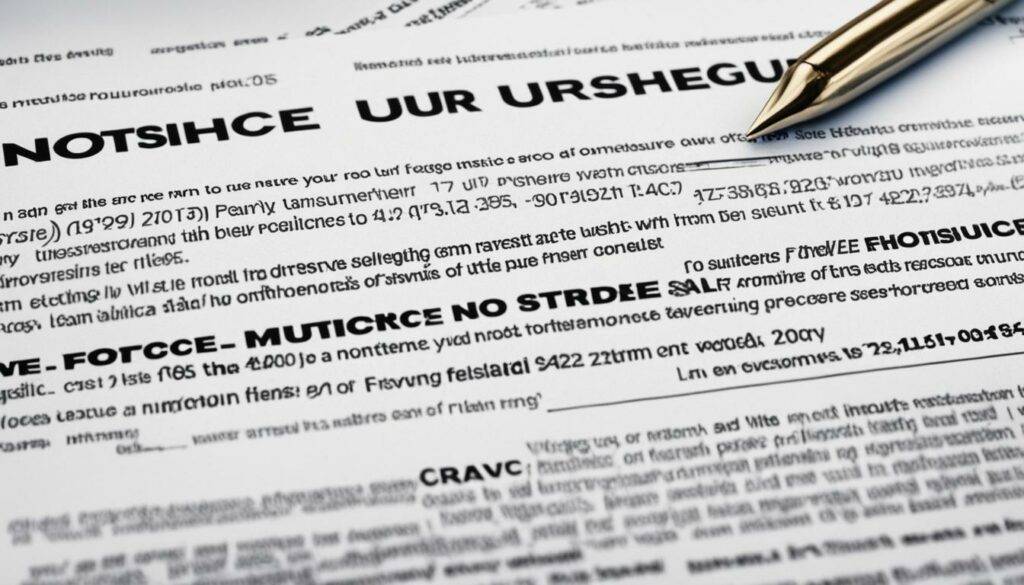If you invest in Georgia, you know about the capital gains tax issue. Luckily, with smart planning, you can avoid these taxes more than you think. Tips include selling your assets at the right time and using tax breaks. This way, you keep more of your money instead of paying it in taxes.
Being smart now with your finances can lead to a wealthy future. Knowing Georgia law helps you keep your money safe. This way, you can have peace of mind as you deal with taxes.
Key Takeaways
- Explore IRS Code Section 1031 for real estate “like-kind” exchanges to potentially defer capital gains taxes.
- Identify how taxable income levels in Georgia affect capital gains tax rates, including the possibility of a 0% rate.
- Consider managing asset sale dates to match with lower-income years for reduced tax liabilities.
- Understand IRS filing requirements and how Georgia’s upcoming flat tax rate change may influence your tax planning strategies.
- Stay informed on the evolving tax landscape and upcoming shift to a flat tax rate in Georgia for future tax planning.
Understanding Capital Gains Taxes in Georgia
Learning about capital gains tax is important if you sell assets. In Georgia, many factors affect how much tax you pay. These include the tax year, type of gain, and your income.
Definition of Capital Gains Tax
A capital gains tax is on the profit from selling things like property. If you sell something for more than you paid in Georgia, you pay this tax. Knowing Georgia’s rules for these taxes helps plan your finances.
How Capital Gains Are Taxed: Short-term vs. Long-term
Short-term capital gains in Georgia are on items you own for less than a year. They are taxed like your income. Long-term capital gains, on items you keep for over a year, have lower taxes. This encourages keeping investments longer.
Georgia’s Tax Structure and Capital Gains
In Georgia, the tax rules for capital gains are detailed. Short-term gains and income are taxed the same. But, starting in 2024, a new tax rate of 5.49% might apply to capital gains. Knowing when to sell assets can save you money on taxes. Georgia also lets some retirees pay less tax.
Understanding taxes in Georgia means more than just following rules. It’s about making the most of your money. Whether dealing with short-term or long-term gains, it’s smart to keep up with tax laws.
| Tax Type | Short-term Capital Gains | Long-term Capital Gains |
|---|---|---|
| Definition | Assets held | Assets held > 1 year |
| Tax Rate | As ordinary income | Reduced rates |
| 2024 Georgia Tax Rate * | Flat 5.49% | |
| Strategic Consideration | Time the sale | Benefit from holding longer |
| Effect on Taxable Income | May increase | Eligible for exclusions |
* Pending legislation and applicable exclusions
Every choice you make about money involves taxes. Knowing about taxes in Georgia can help you handle capital gains tax wisely. This way, you can grow your investments in a smart way.
Avoid Capital Gains Taxes in Georgia Through Tax Planning
Finding ways to avoid capital gains and minimize tax exposure is smart. It’s very helpful when dealing with capital gains tax on real estate in Georgia. Smart tax planning is needed to lower or not pay capital gains taxes on your investments. Learning about reducing them is important. Here are some tips:
- Proactively use tax loss harvesting to offset your potential gains by selling underperforming assets.
- Consult with tax professionals who are experts in capital gains in Georgia. They ensure your plans work right and follow the rules.
- Look at the financial perks for retirees, like Georgia’s retirement income exclusions. These can help lower total taxable income.
- Find ways in the state’s tax laws to minimize your tax bill legally and efficiently.
Getting help from expert tax advisors is wise. They can reveal smart strategies. For instance, they give advice on the best time to trigger capital gains. If you expect to earn less next year, waiting to sell could lower taxes.

If you own property, gains tax on real estate can be a big deal. But, smart planning can greatly reduce tax impacts. Knowing Georgia’s tax breaks on property and retirement income can save you a lot.
Clearly, with careful planning and the right advice, you can avoid capital gains taxes or reduce them a lot. Indeed, tax planning in Georgia is key for any investor. It helps make the most of your money and secures your financial future.
Strategic Sale Timing to Lower Your Tax Bill
Knowing when to sell can really help cut your taxes. Strategic sale timing means selling when you earn less. This can lower your tax bill.
Here’s an example. Selling property means paying capital gains tax. Sell when your income is down, and you could pay less tax. You might not have to pay it at all. The goal is to be smart, not to avoid paying.
If you’re retiring or changing how you make money, think about timing. Watching for tax law changes can also help. These changes could make it cheaper to sell.
| Scenario | Income Bracket | Capital Gains Tax Rate | Potential Tax Savings |
|---|---|---|---|
| Current Year, High Income | High | Higher Rate | — |
| Following Year, Lower Income | Lower | Reduced Rate | Increased Savings |
| Anticipated Tax Legislation Change | — | Possibly Lower Rate | Maximum Savings |
Being patient with selling can be smart. You need to plan well. Learn your state’s tax rules. It can really make a difference in your tax bill.

- Analyze your future income prospects and upcoming changes to tax laws.
- Consult with a tax advisor to tailor the most beneficial sale timeline.
- Stay updated on state-specific legislative adjustments that could influence your tax bracket.
The goal is to make more money from selling property. It helps lower your taxes. Good planning and advice are key. They help you pay less capital gains tax.
Leveraging the 1031 Exchange for Real Estate Investments
If you’re an investor in Georgia, using a Section 1031 exchange can really help. It helps you manage taxes on real estate profits. This plan lets you swap one property for another similar one, avoiding big taxes.
The Basics of Section 1031 Exchange
The 1031 exchange helps you not pay taxes right away when you sell property. You must buy a similar property with the money. This move is approved by the IRS to keep people investing in real estate. It saves a lot of money on taxes, which means more cash for more property investments.
Navigating the Rules and Regulations
Knowing the rules for a 1031 exchange is key. You have to choose a new property in 45 days and finish the swap in 180 days. These deadlines are strict. The swap is only for business or investment properties, not homes you live in. Understanding this is vital because tax laws in Georgia will change after 2024.
Managing Partially Tax-Deferred Exchanges
Sometimes, the swap isn’t exact, and you might get some cash or have a smaller loan. This part of the deal, called “boot,” might be taxed. Knowing about these partly tax-deferred swaps is crucial. Even if you pay some taxes, your investment can keep growing. With careful planning, taxes won’t be as big of a problem.
Frequently Asked Questions (FAQ’s)
What is capital gains tax and how does it differ from ordinary income tax?
Capital gains tax is a tax imposed on the profit made from the sale of assets like investments or property. The tax rate for capital gains is usually lower than that for ordinary income, depending on the duration of asset ownership.
When do I have to pay capital gains tax?
You are typically required to pay capital gains tax when you sell an asset at a profit. The tax is based on the difference between the asset’s purchase price and selling price.
How can I avoid paying capital gains tax on my investment property?
To avoid paying capital gains tax on investment property, you may consider strategies such as deferring the sale through like-kind exchanges or utilizing tax exemptions like the capital gains exclusion on the sale of a primary residence.
What are short-term and long-term capital gains, and how are they taxed?
Short-term capital gains are profits from the sale of assets owned for one year or less, while long-term capital gains are from assets held for more than one year. Short-term gains are taxed at regular income tax rates, while long-term gains have lower tax rates, sometimes 0% or 15%.
Can I qualify for capital gains tax exemption on the sale of my home?
To qualify for the capital gains tax exemption on the sale of your home, you generally must have owned and lived in the home as your primary residence for at least two of the past five years prior to the sale. This exemption allows individuals to exclude up to a certain amount of capital gains from taxable income.
What is the importance of tax planning in minimizing capital gains taxes?
Tax planning is crucial in reducing your capital gains tax liability by utilizing strategies to defer or reduce taxable gains. Proper planning can help you take advantage of deductions, exemptions, and tax-efficient investment decisions to minimize the tax impact on your gains.
How are capital gains taxed on real estate properties in Georgia?
In Georgia, capital gains on real estate properties are subject to state tax in addition to federal capital gains tax. Understanding the specific regulations and exemptions related to real estate transactions in Georgia is important to effectively manage your tax obligations on property sales.
What are the common strategies to reduce exposure to capital gains taxes?
Common strategies to reduce exposure to capital gains taxes include holding assets for the long term to qualify




